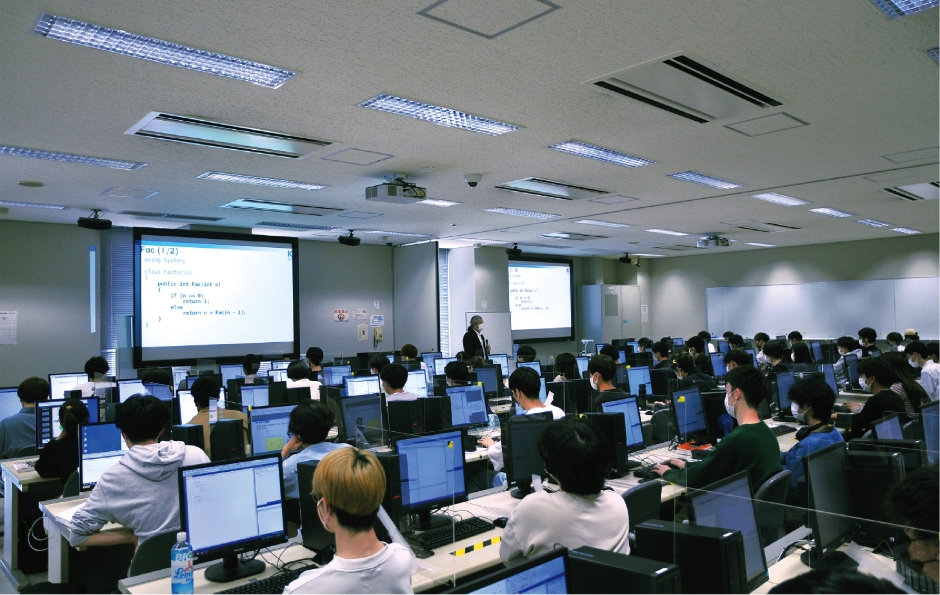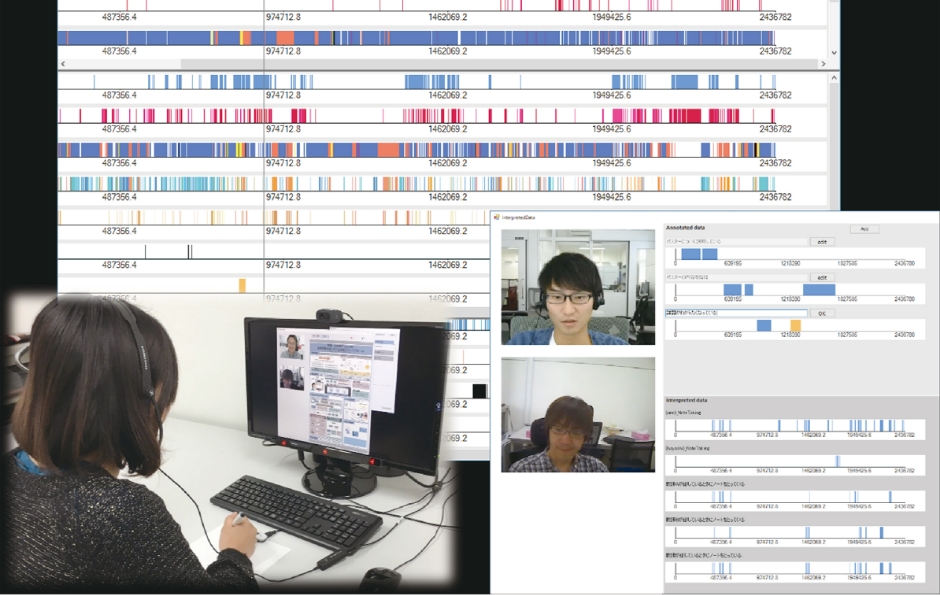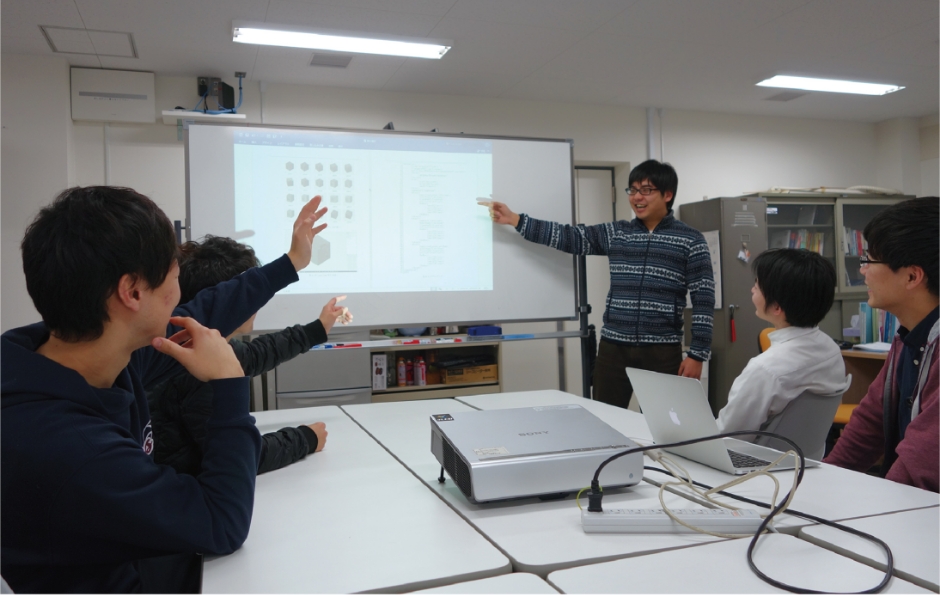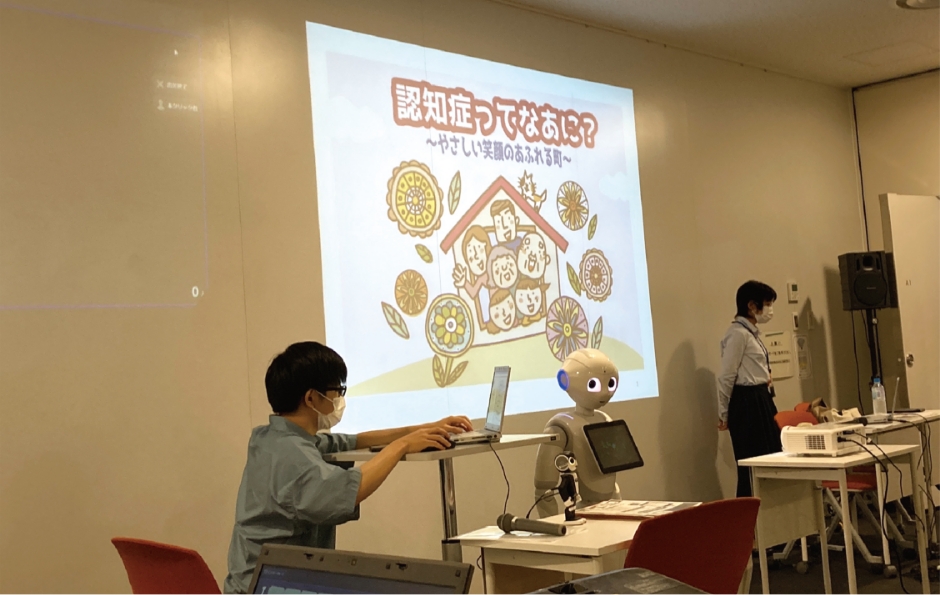Vision & Education
Information systems such as the internet and mobile phones make our lives more convenient and comfortable. Meanwhile, modern society has become increasingly complex and diverse, and problems that cannot be solved with expertise in a single field are arising in various places. The School of Knowledge and Information Systems provides students with the basics of cutting-edge knowledge science and information systems engineering and helps them acquire knowledge in multiple specialized fields in five categories: information networks, social sciences, production systems, healthcare, and artificial intelligence. Its goal is to develop human resources who can make full use of such knowledge and technologies to create new systems and future services that will contribute to solving existing problems.
Information networks
We provide students with basic knowledge and skills regarding the Internet and web services and develop human resources who have knowledge of information system design, planning, and operation methods, and information security. We also build up understanding of the latest technologies, including machine learning, IoT (Internet of Things), and 6G (the six generation mobile communication system), and cultivate the ability to create new technologies and services that apply these existing technologies.
Production systems
To supply high-quality products faster at lower costs than competitors in a globally competitive environment, manufacturers need to have advanced production systems (organizations that design products and factories that produce them). For example, it is necessary to design products that take into account the different ways in which they will be used in each region of the world and to schedule production in an environment where region-specific demand and many other types of information is uncertain. We develop human resources who have practical abilities related to the design, analysis, control, operation, and management of production systems.
Social sciences
We develop human resources who are familiar with empirical analysis of the effectiveness of information systems in companies and local governments, theoretical analysis techniques using information technology to create new systems such as online auctions, and the theories and techniques of analyzing business and marketing data such as POS data to improve organizational decision-making.
Healthcare
Japan is one of the most aging societies in the world and needs to be the first in the world to resolve health, medical care, and nursing care issues. Therefore, we aim to develop human resources who can contribute to the realization of a healthier, spiritually richer healthcare society by utilizing the basic knowledge in information science learned at the School of Knowledge and Information Systems as well as the cutting-edge technologies offered by other Schools of the College of Sustainable System Sciences and other Colleges of OMU. Specifically, through practical activities, students will learn about the collection and analysis of biological data using IoT and the utilization of such data, the building of behavioral change models as part of pre-symptomatic disease prevention and health management methods, and the development of high-quality healthcare worker training systems using ICT, including robots, AR, and VR.
Artificial Intelligence
Human-Computer Interaction
Students will acquire a background for developing human-friendly and intelligent information systems. To develop such systems, you need to cultivate the ability to build a human-aware system that enables artificial intelligence to understand us humans well, grasp our needs through its interactions with each of us, and bring out and enhance our intelligence. To this end, we develop human resources who are familiar with knowledge science, cognitive science, knowledge modeling techniques, and system planning and development methods.
Data science
We develop human resources who can utilize artificial intelligence techniques as a way to approach social problems, based on systems thinking when the problems cannot be solved using conventional methods. Students will learn basic knowledge of artificial intelligence and theoretical knowledge of machine learning and will realize that social problems can be solved as mathematical optimization problems through operations research. In order to make such knowledge utilized in manufacturing, students will be provided basic learning and practical exercises on programming, creating a foundation that will lead society to the cutting edge.



